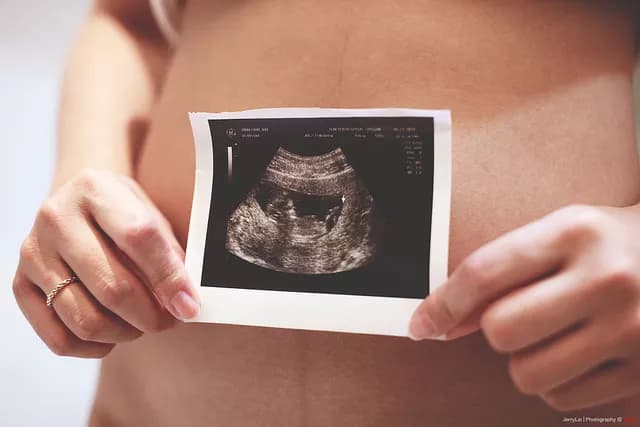
Additional Hormone Measurement Reveals Pregnant Women At High Risk Of Preeclampsia
An additional blood test for pregnant women accurately predicts which women with high thyroid function are at risk of developing preeclampsia, according to a study presented today at the European Congress of Endocrinology. The findings may help identify high-risk pregnant women and potentially avoid unnecessary treatment that carries the risk of fetal abnormalities.
Preeclampsia is a condition that occurs during the second half of pregnancy, where women have high blood pressure and pass protein in their urine. It occurs in 2-8% pregnancies and in some cases leads to serious complications for both mother and child, including seizures, kidney failure, haemorrhage and preterm birth.
One of the risk factors for preeclampsia is hyperthyroidism, which can be caused by medical conditions such as Graves' Disease or toxic thyroid nodules. However, high levels of hCG, a hormone that rises naturally during pregnancy, also leads to high thyroid function but this type of pregnancy-related hyperthyroidism does not have an increased risk of preeclampsia.
As taking drugs to treat high thyroid function during pregnancy carries the risk of causing fetal abnormalities, it is important to distinguish between an overactive thyroid caused by pregnancy-related hCG or one caused by a conventional underlying thyroid condition.
In this study, researchers measured the hormones of 5153 women during early pregnancy (before the 18th week) and found that women with high levels of thyroid hormone but low levels of hCG were between three and eleven times more likely to develop preeclampsia. Women with high levels of thyroid hormone and high levels of hCG were not at increased risk of preeclampsia. The researchers accounted for other factors including the age, smoking, education and ethnicity of the expectant mothers as well as the gender of the baby.
"Most pregnant women will have high thyroid hormone levels because of a natural rise in hCG, rather than an underlying thyroid condition like Grave's Disease or toxic nodules," said lead author of the study Dr Tim Korevaar from the Erasmus University Medical Center in Rotterdam.
"Doctors do not currently screen for preeclampsia, although many do measure thyroid hormone during pregnancy," continued Dr Korevaar. "Measuring hCG as well may help doctors to more accurately interpret thyroid function tests in pregnant women."
"Our work will potentially reassure the vast majority of patients who do not actually have an underlying thyroid condition by helping them avoid unnecessary treatment."
The above post is reprinted from materials provided by European Society of Endocrinology.Note: Materials may be edited for content and length.
Disclaimer: DoveMed is not responsible for the adapted accuracy of news releases posted to DoveMed by contributing universities and institutions.
Primary Resource:
Korevaar, T., Steegers, E., Medici, M., Visser, T., & Peeters, R. (2016). Additional measurement of hCG distinguishes physiological high-normal thyroid function and reveals large differences in the risk of developing preeclampsia.
Related Articles
Test Your Knowledge
Asked by users
Related Centers
Related Specialties
Related Physicians
Related Procedures
Related Resources
Join DoveHubs
and connect with fellow professionals

0 Comments
Please log in to post a comment.